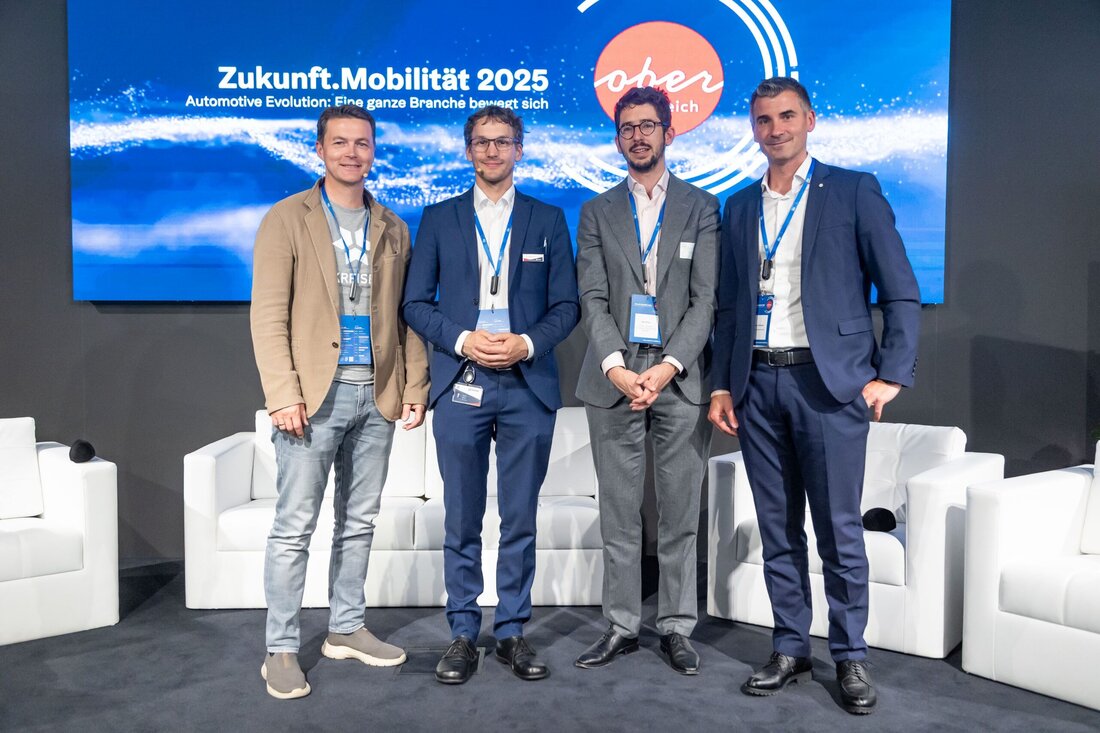Suppliers ready for transformation
At the “Future.Mobility 2025” of the Upper Austria Automobile Cluster, experts outlined the future prospects of the automobile and supplier industry.

Suppliers ready for transformation
240 interested people attended the Raiffeisen Arena in Linz on June 11th and 12th and joined in the discussion. Conclusion: Anyone who increases the pace and tries out new moves actively shapes the future.
The Future Mobility Region Tour kicked off the one and a half day event. At BRP-Rotax, the participants experienced first-hand how the transformation to modern drive technologies can be successful. The internationally operating company invests specifically in research and development and focuses on diversity - from classic combustion engines to hydrogen solutions and electromobility. Bernhard Kölmel, professor at Pforzheim University, put forward provocative theses about the future of European automotive suppliers: “Many companies have become sluggish and have rested on their laurels.” The innovation management expert is convinced that the principle of “Good Enough Technology” will also apply to electromobility. This refers to technologies that are functionally sufficient to meet customer needs and for which the origin is increasingly taken into account by the price. As a result, European suppliers could come away empty-handed. Kölmel's appeal: open up new markets, for example in medical or defense technology. Pforzheim University is also dealing with the challenges of transformation in the EU project “Drive2Transform” together with the automobile cluster and seven other partners - primarily for SMEs and tailored to regional needs. The focus is on electrification, automation, connectivity and platform economics.
Thought leaders and implementers
The discussion after Kölmel's keynote speech took up the innovation race as a central topic. Bernhard Brandstätter from A3PS emphasized the importance of the “triple transition” – i.e. transformation in three areas: digital, human-centric and green. The focus on the circular economy in particular could be Europe's unique selling point. Markus Manz from the Software Competence Center Hagenberg advocated a reform of the funding system and more private capital through public-private partnerships. Christian Nemeth from Energie AG Oberösterreich highlighted the central role of the energy sector in the transformation. In keeping with the Raiffeisen Arena, Florian Danmayr, manager of the automobile cluster, opened the second day with football analogies: "The best individual achieves nothing without a functioning team. This is where the automobile cluster comes into play and brings dynamism to the network." He also drew comparisons with regard to squads, young talents and promotion or relegation: "We have top research and innovative, internationally oriented companies in Upper Austria. Our universities, HTLs and also the companies train the urgently needed skilled workers of the future. And where do we want to play? Definitely in the Champions League. As a location agency, we support this."
New business models
Nils Poel from Clepa (European Association of Automotive Suppliers) referred to the strong competitive pressure from China for electric vehicles. “Strengthening competitiveness is the only answer to this,” he made clear. Josef Ecker from the Edag Engineering Group focused on battery recycling as a new business model: “This is the beginning of a new value chain, an opportunity for Austria to get involved in a timely manner.” Markus Kreisel from Kreisel Electric confirmed that automation and electrification have arrived in agriculture: “There is great interest in the E-Power tractor.” Stefan Heindl from AVL also agreed. "When it comes to trucks, the challenge is to transfer the performance of diesel trucks into an emission-free future. We have already developed a fuel cell truck for this purpose," said Heindl. The projects presented also showed how concretely the change in mobility is progressing. “SMaDBatt” is developing new material combinations with bio-based raw materials for battery trays. “RIAMO” is testing an electric, automated on-demand shuttle for rural regions – including an automated charging solution. The EU project “DeremCo” is researching recycling solutions for fiber-reinforced plastics, such as those used in airplanes or cars. “GUARDIAN” examines how automated machines can operate safely in public spaces and what standards are necessary for this. “HyFAR” develops hybrid, automated fleets that combine different vehicle types and levels of automation. In addition, SAAM Austria, the new strategic alliance for automated mobility led by the Automobile Cluster, connects the Austrian community around automated driving.

 Suche
Suche
 Mein Konto
Mein Konto